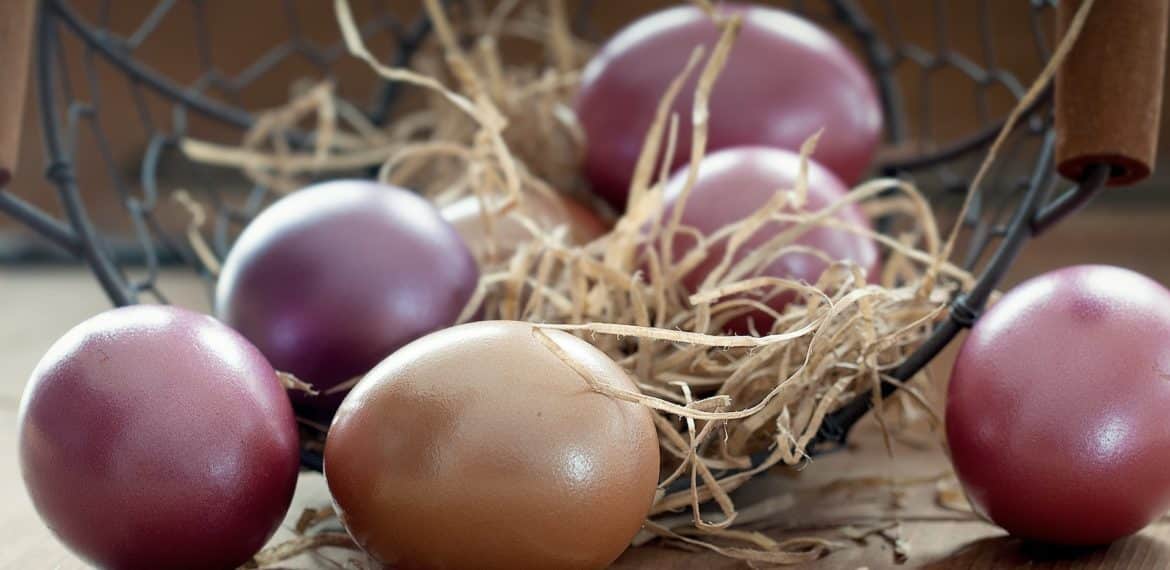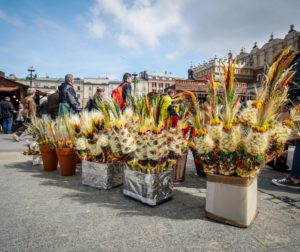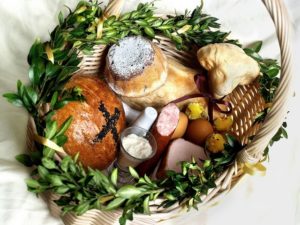Easter in Poland is the second most important Christian holiday after Christmas. It is celebrated everywhere around the country, Easter being very religious in character, but also simply an important Polish family tradition.
Easter traditions
The very first Easter celebration takes place a week before the Easter Sunday, on the so-called Palm Sunday. According to Catholic tradition, this is the day marking the arrival of Jesus to Jerusalem where he was welcomed by people waving palm twigs. In Poland, the “palms” are made from colourful paper and twigs from native trees.
Easter practices in Poland, although shaped by the Church, are strongly influenced by pagan customs. The most distinctive Polish Easter custom is decorating eggs. Every region in Poland has its own unique eggs-decorating tradition and style. Decorated eggs are present in every Polish home, regardless of the religious beliefs. They are also often put in the basket for blessing in a church, which is another Easter tradition.
The Easter baskets are taken to church on Easter Sunday before the family gathers together for a festive Easter breakfast. A special mass is held and baskets filled with food that will be eaten later on are being blessed. The food is traditional and Easter baskets always contain bread, boiled eggs, sausage, salt, horseradish and a piece of homemade pie. All those products have Christian symbolism.
Easter Sunday breakfast begins with sharing the food that was blessed in the church. What follows are the long hours spent at the table, chatting with your family and lots of food. After breakfast, there is immediately time for cakes and pies. Mazurek – a shortcrust pastry with a layer of butterscotch or fudge caramel decorated with nuts and dried fruit, is always eaten on Easter. Another typical Easter cake is babka – a sweet yeast cake (a type of pound cake).
On Easter Sunday shops all over the country are closed. It is a public holiday, just as the following Monday, so expects most restaurants, galleries, cinemas, and shops to be closed.


